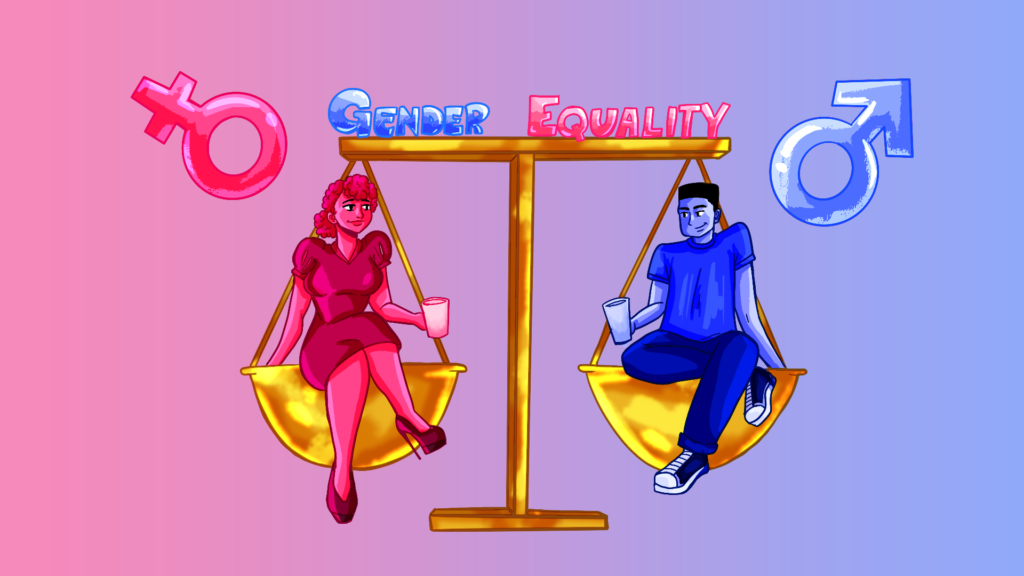By Michael Okeowo
A fundamental principle known as Gender Equality promotes equal rights, opportunities and treatment for people of all genders. It embodies the idea that people shouldn’t face prejudice or disadvantage because of how they express their gender. Forging a just and inclusive society that benefits everyone, regardless of gender, requires achieving Gender Equality. In this article, we are talking about the value of Gender Equality, how it affects different facets of life, and what needs to be done to advance this important cause.
Social justice is one of the main reasons that Gender Equality is important. It guarantees that everyone has equal access to opportunities for personal and professional development, employment, healthcare and education. Women and girls are better equipped to contribute fully to society, break the cycle of poverty, and act as change agents in their communities when they have equal access to education and resources provided for the male. Due to the fact that it enables societies to utilise the talents, abilities, and creative ideas of people of all gender, Gender Equality also fosters economic growth and development.
Beyond addressing disparities, Gender Equality includes combating harmful gender stereotypes and norms that support prejudice and inequality. Stereotypes like the notion that particular professions or roles are only appropriate for particular genders limit personal potentials and impede advancement. The removal of these obstacles and the acceptance of diversity in all of its manifestations pave the way for a more accommodating society where people can freely pursue their passions and talents without worry of discrimination or judgement.
Additionally, recognising and combating gender-based discrimination and violence is necessary for achieving Gender Equality. Various forms of violence, such as domestic abuse, sexual harassment, and human trafficking, disproportionately affect women and girls more. Men and boys also face unique difficulties, such as pressure from society to uphold rigid notions of masculinity, which can be detrimental to their mental health and well-being. By preventing gender-based violence and encouraging respectful relationships, we make everyone’s surroundings safer and contribute to the development of a culture that values empathy, respect and dignity.
It is essential to put policies and initiatives that support equal opportunities and rights into place if Gender Equality is to advance. This includes passing legislation to prevent gender-based discrimination in the workplace, guaranteeing equal pay for equal work, and putting in place extensive laws to stop gender-based violence. Gender mainstreaming, which involves incorporating gender perspectives into policies, programmes, and decision-making processes, should be given top priority by governments, institutions and organisations. This makes it possible to identify and address gender gaps and disparities in a variety of fields, including politics, the workforce, healthcare and education.
The promotion of Gender Equality depends critically on education. Educational institutions can combat gender stereotypes, promote inclusive learning environments, and give students the knowledge and skills they need to promote equality in their future endeavours, by incorporating gender equality into their curricula. The gender gap in these traditionally male-dominated industries can be closed by promoting mentorship programmes and encouraging female participation in STEM fields – (science, technology, engineering, and mathematics). Similar to this, involving boys and men in conversations about gender equality can encourage ‘ally-ship’ and aid in the tearing down of damaging gender norms.








More Stories
Bringing Life to Ajaokuta Steel Company
Reconsidering the cybersecurity levy
Tinubunomics: what’s working, what’s not, why and way forward